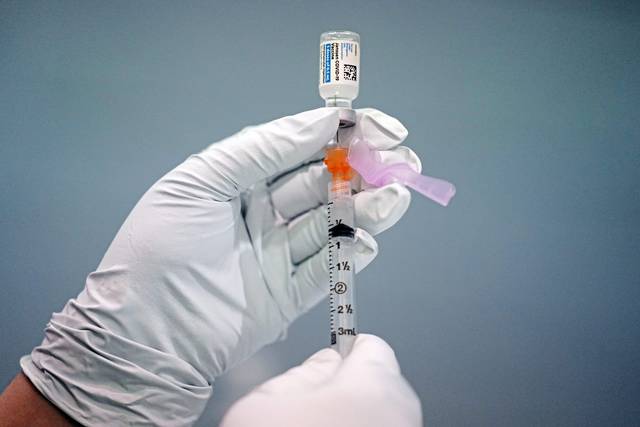On Tuesday, the Food and Drug Administration and the Centers for Disease Control and Prevention announced the investigation of six reports of blood clots in women who had been administered the Johnson & Johnson covid-19 vaccine.
This isn’t a reason to be alarmed so much as proof that the system in place for evaluating and controlling drugs is working the way it is supposed to work.
After a year of development, the vaccine was authorized. There were 6.8 million doses given out and six reports of complications, including one death. The U.S. agencies did not say “just six?” and shrug. They made an announcement, made sure people know what is happening and pressed pause on the administration of the single-dose vaccine.
This is important because the coronavirus pandemic is new. It isn’t a disease we have seen every year for a hundred years. We don’t have a wealth of data or history. What we have is drive and ingenuity and one more thing — trust.
What makes people able to believe in the vaccine is trust that there is compliance and oversight, that we are being told the truth.
And this is why the Pennsylvania Department of Health has to step up to the same plate.
The department has sidestepped a request from independent newsroom Spotlight PA seeking records about wasted covid-19 vaccine doses, relying on the Disease Prevention and Control Law.
That’s a law passed in 1955. The purposes of the authority it grants the state to limit information release is to protect the confidentiality of individuals.
The purpose of exceptions to transparency laws should never be to protect the government. It should be always to protect the people.
The state says just 1,589 doses were wasted as of Feb. 26, just 0.06% of the 2.3 million administered by that point. The waste, according to the Department of Health, was from broken vials, needle malfunctions or client refusal. All of those are understandable and that minuscule amount of waste is commendable.
But there are still questions to ask — questions that do not affect patient confidentiality. What is the most common way the doses have been wasted? Are there processes that could improve the numbers? Are there areas or providers that are subject to one outcome more than others?
Answering questions is what builds trust. Hiding from questions builds fear. A global pandemic has created enough fear already. It is the state’s obligation to increase trust.








